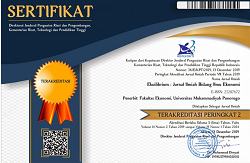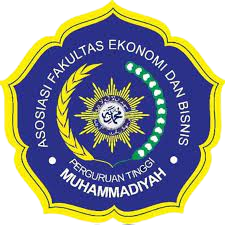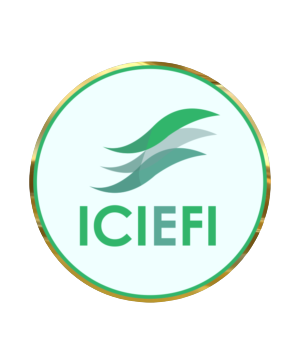Understanding Management Marketing in Digitalization and Automation Times
DOI: 10.24269/ekuilibrium.v17i2.2022.pp110-121
Abstract
Keywords
References
- Akhlak, M. L. M. (2021). Efektifitas dan Efisiensi Digital Marketing melalui Otomatisasi Instagram. Transformasi, 16(2), Article 2. https://doi.org/10.56357/jt.v16i2.221
- Bhimani, A., & Willcocks, L. (2014). Digitisation, ‘Big Data’ and the Transformation of Accounting Information. Accounting and Business Research, 44(4), 469–490. https://doi.org/10.1080/00014788.2014.910051
- Carter, C. R., Hatton, M. R., Wu, C., & Chen, X. (2019). Sustainable Supply Chain Management: Continuing Evolution and Future Directions. International Journal of Physical Distribution & Logistics Management, 50(1), 122–146. https://doi.org/10.1108/IJPDLM-02-2019-0056
- Chaffey, D., & Smith, P. R. (2017). Digital Marketing Excellence: Planning, Optimizing and Integrating Online Marketing (5 ed.). Routledge. https://doi.org/10.4324/9781315640341
- Cluley, R., Green, W., & Owen, R. (2020). The Changing Role of the Marketing Researcher in the Age of Digital Technology: Practitioner Perspectives on the Digitization of Marketing Research. International Journal of Market Research, 62(1), 27–42. https://doi.org/10.1177/1470785319865129
- Diamond, S. (2019). Digital Marketing All-in-One for Dummies. John Wiley & Sons.
- Dinu, D. M., Radu, A., & Văduva, L. (2020). Using Marketing Automation Platforms to Enhance Customer Experience during his Buying Journey. 32nd EBES Conference, 1106.
- Fernandes, T., & Oliveira, E. (2021). Understanding Consumers’ Acceptance of Automated Technologies in Service Encounters: Drivers of Digital Voice Assistants Adoption. Journal of Business Research, 122, 180–191. https://doi.org/10.1016/j.jbusres.2020.08.058
- Gentsch, P. (2018). AlI in Marketing, Sales and Service: How Marketers without a Data Science Degree can use AI, Big Data and Bots. Springer.
- Heimbach, I., Kostyra, D. S., & Hinz, O. (2015). Marketing Automation. Business & Information Systems Engineering, 57(2), 129–133. https://doi.org/10.1007/s12599-015-0370-8
- Hutt, M. D., & Speh, T. W. (2021). Business marketing management: B2B. South-Western, Cengage Learning.
- Irina, I. (2016). What is Marketing Automation and How Could it be used for Business? Anuarul Institutului de Cercetari Economice" Gheorghe Zane"-Iasi, 25(1), 11.
- IšoraitĖ, M. (2020). Digital Marketing Features. Int. J. Trend Sci. Res. Dev., 5, 5–8.
- Järvinen, J., & Taiminen, H. (2016). Harnessing Marketing Automation for B2B Content Marketing. Industrial Marketing Management, 54, 164–175. https://doi.org/10.1016/j.indmarman.2015.07.002
- Key, T. M., & Keel, A. L. (2020). How Executives Talk: Exploring Marketing Executive Value Articulation with Computerized Text Analysis. European Journal of Marketing, 54(3), 546–569. https://doi.org/10.1108/EJM-01-2019-0105
- Kim, T.-H., Cho, K.-S., Lee, E. K., Lee, S. J., Chae, J., Kim, J. W., Kim, D. H., Kwon, J.-Y., Amaratunga, G., Lee, S. Y., Choi, B. L., Kuk, Y., Kim, J. M., & Kim, K. (2011). Full-Colour Quantum dot Displays Fabricated by Transfer Printing. Nature Photonics, 5(3), 176–182. https://doi.org/10.1038/nphoton.2011.12
- Kotler, P., Kartajaya, H., & Setiawan, I. (2021). Marketing 5.0: Technology for Humanity. John Wiley & Sons.
- Legner, C., Eymann, T., Hess, T., Matt, C., Böhmann, T., Drews, P., Mädche, A., Urbach, N., & Ahlemann, F. (2017). Digitalization: Opportunity and Challenge for the Business and Information Systems Engineering Community. Business & Information Systems Engineering, 59(4), 301–308. https://doi.org/10.1007/s12599-017-0484-2
- Leonow, A. I., Koniagina, M. N., Petrova, S. V., Grunt, E. V., Kerimkhulle, S. Y., & Shubaeva, V. G. (2019). Application of Information Technologies in Marketing: Experience of developing countries. Revista ESPACIOS, 40(38). https://www.revistaespacios.com/a19v40n38/19403824.html
- Lerch, C., & Gotsch, M. (2015). Digitalized Product-Service Systems in Manufacturing Firms: a Case Study Analysis. Research-Technology Management, 58(5), 45–52. https://doi.org/10.5437/08956308X5805357
- Lyu, J. (2021). Will Marketing Automation Encourage Repurchase Intention through Enhancing Brand Experience? an Empirical Study of Omni-Channel Retailing in China. Dalam Á. Rocha, J. L. Reis, M. K. Peter, R. Cayolla, S. Loureiro, & Z. Bogdanović (Ed.), Marketing and Smart Technologies (hlm. 401–412). Springer. https://doi.org/10.1007/978-981-33-4183-8_32
- Makkulau, A., Hamzah, D., & Laba, R. (2017). Analisis Strategi Bisnis dalam Meningkatkan Market Share dengan menggunakan Pendekatan Analisis Business Model Canvas (BMC) dan SWOT Analysis pada PT Semen Tonasa. Jurnal Bisnis, Manajemen dan Informatika, 149–159.
- Mandal, P., & Joshi, N. (2017). Understanding Digital Marketing Strategy. International Journal of Scientific Research and Management, 5(6), 5428–5431.
- McGruer, D. (2020). Dynamic Digital Marketing: Master the World of Online and Social Media Marketing to Grow Your Business. John Wiley & Sons.
- Miller, T., Birch, M., Mauthner, M., & Jessop, J. (2012). Ethics in Qualitative Research. SAGE.
- Mrohs, A. (2021). Marketing Automation: Defining the Organizational Framework. Dalam U. G. Seebacher (Ed.), B2B Marketing: A Guidebook for the Classroom to the Boardroom (hlm. 211–227). Springer International Publishing. https://doi.org/10.1007/978-3-030-54292-4_8
- Mustaqfirotunnisa, A., & Susilo, A. (2021). Implementasi Digital Marketing pada Pelaku Bisnis Online Mahasiswa (Studi Mahasiswa Universitas Muhammadiyah Surakarta dan Institut Agama Islam Negeri Surakarta) [S1, Universitas Muhammadiyah Surakarta]. https://doi.org/10/10/SURAT%20PERNYATAAN%20PUBLIKASI%20ILMIAH%20%282%29.pdf
- Noble, H., & Smith, J. (2014). Qualitative Data Analysis: A Practical Example. Evidence-Based Nursing, 17(1), 2–3.
- Oesterreich, T. D., & Teuteberg, F. (2016). Understanding the Implications of Digitisation and Automation in the Context of Industry 4.0: A Triangulation Approach and Elements of a Research Agenda for the Construction Industry. Computers in Industry, 83, 121–139. https://doi.org/10.1016/j.compind.2016.09.006
- Parekh, D., Kapupara, P., & Shah, K. (2016). Digital Pharmaceutical Marketing: a Review. Research Journal of pharmacy and technology, 9(1), 108.
- Parvez, S. J., Moyeenudin, H. M., Arun, S., Anandan, R., & Janahan, S. K. (2018). Digital Marketing in Hotel Industry. International Journal of Engineering & Technology, 7(2.21), 288–290.
- Pol, M. (2019). Marketing Automation in B2B Services as a Necessary Form in Acquiring a Contemporary Client. Problemy Zarządzania, 17(5 (85)), 74–88.
- Pradhan, P., Nigam, D., & Ck, T. (2018). Digital Marketing and SMES: An Identification of Research Gap via Archives of Past Research. Journal of Internet Banking and Commerce, 23(1), 1–14.
- Prahalathan, G., Babu, S. K., & Praveena, H. D. (2021). Digitalization and Automation in Agriculture Industry. Dalam Innovations in the Industrial Internet of Things (IIoT) and Smart Factory (hlm. 205–216). IGI Global.
- Purnomo, H. (2021). Software Trends in Improving Local Tourism Product Marketing in Indonesia: A Systematic Review. International Journal of Business, Economics and Management, 4(1), 77–84. https://doi.org/10.31295/ijbem.v4n1.1050
- Rae, T. (2016). The effect of Marketing Automation on Customer Experience. https://aaltodoc.aalto.fi:443/handle/123456789/27676
- Ratia, M., Myllärniemi, J., & Helander, N. (2018). Robotic Process Automation—Creating Value by Digitalizing Work in the Private Healthcare? Proceedings of the 22nd International Academic Mindtrek Conference, 222–227. https://doi.org/10.1145/3275116.3275129
- Rodrigues, D., & Martinez, L. F. (2020). The Influence of Digital Marketing on Recruitment Effectiveness: A Qualitative Study. European Journal of Management Studies, 25(1), 23–44. https://doi.org/10.1108/EJMS-09-2020-002
- Sasu, C., & Ichim, D. (2016). Qualitative Analysis of the Digital Marketing Influence on the Behaviour of the Organizational Consumer. Management (18544223), 11(2).
- Sestino, A., Prete, M. I., Piper, L., & Guido, G. (2020). Internet of Things and Big Data as Enablers for Business Digitalization Strategies. Technovation, 98, 102173. https://doi.org/10.1016/j.technovation.2020.102173
- Silva, S. C., Corbo, L., Vlačić, B., & Fernandes, M. (2021). Marketing Accountability and Marketing Automation: Evidence from Portugal. EuroMed Journal of Business, ahead-of-print(ahead-of-print). https://doi.org/10.1108/EMJB-11-2020-0117
- Todor, R. D. (2017). Promotion and Communication Through E-mail Marketing Campaigns. Bulletin of the “Transilvania” University of Brasov, 10(59), 61–66.
- Urbach, N., & Röglinger, M. (2019). Introduction to Digitalization Cases: How Organizations Rethink Their Business for the Digital Age. Dalam N. Urbach & M. Röglinger (Ed.), Digitalization Cases: How Organizations Rethink Their Business for the Digital Age (hlm. 1–12). Springer International Publishing. https://doi.org/10.1007/978-3-319-95273-4_1
- Veleva, S. S., & Tsvetanova, A. I. (2020). Characteristics of the Digital Marketing Advantages and Disadvantages. IOP Conference Series: Materials Science and Engineering, 940(1), 012065. https://doi.org/10.1088/1757-899X/940/1/012065
- Zumstein, D., Oswald, C., Gasser, M., Lutz, R., & Schoepf, A. (2021). Marketing Automation Report 2021: Lead Generation and Lead Qualification Through Data-Driven Marketing in B2B.
Refbacks
- There are currently no refbacks.

This work is licensed under a Creative Commons Attribution-ShareAlike 4.0 International License.














